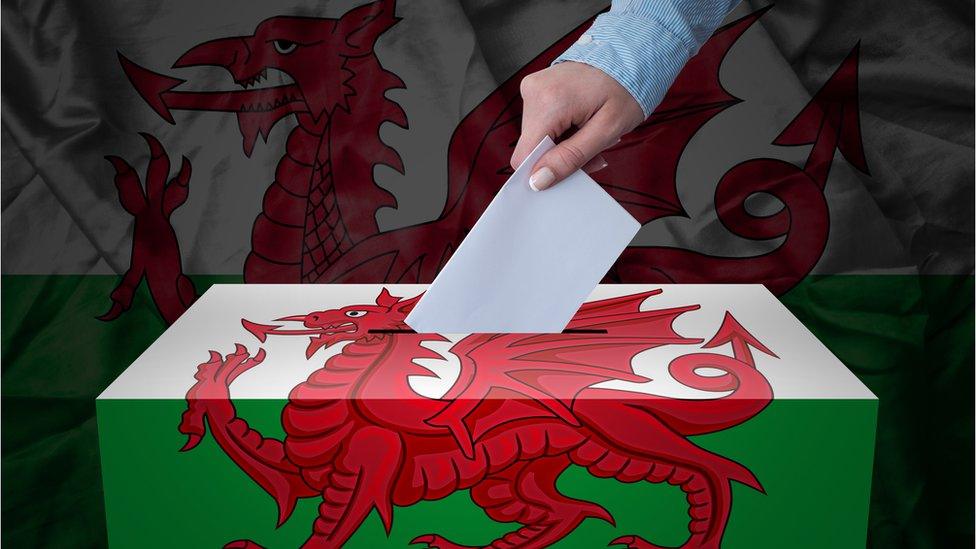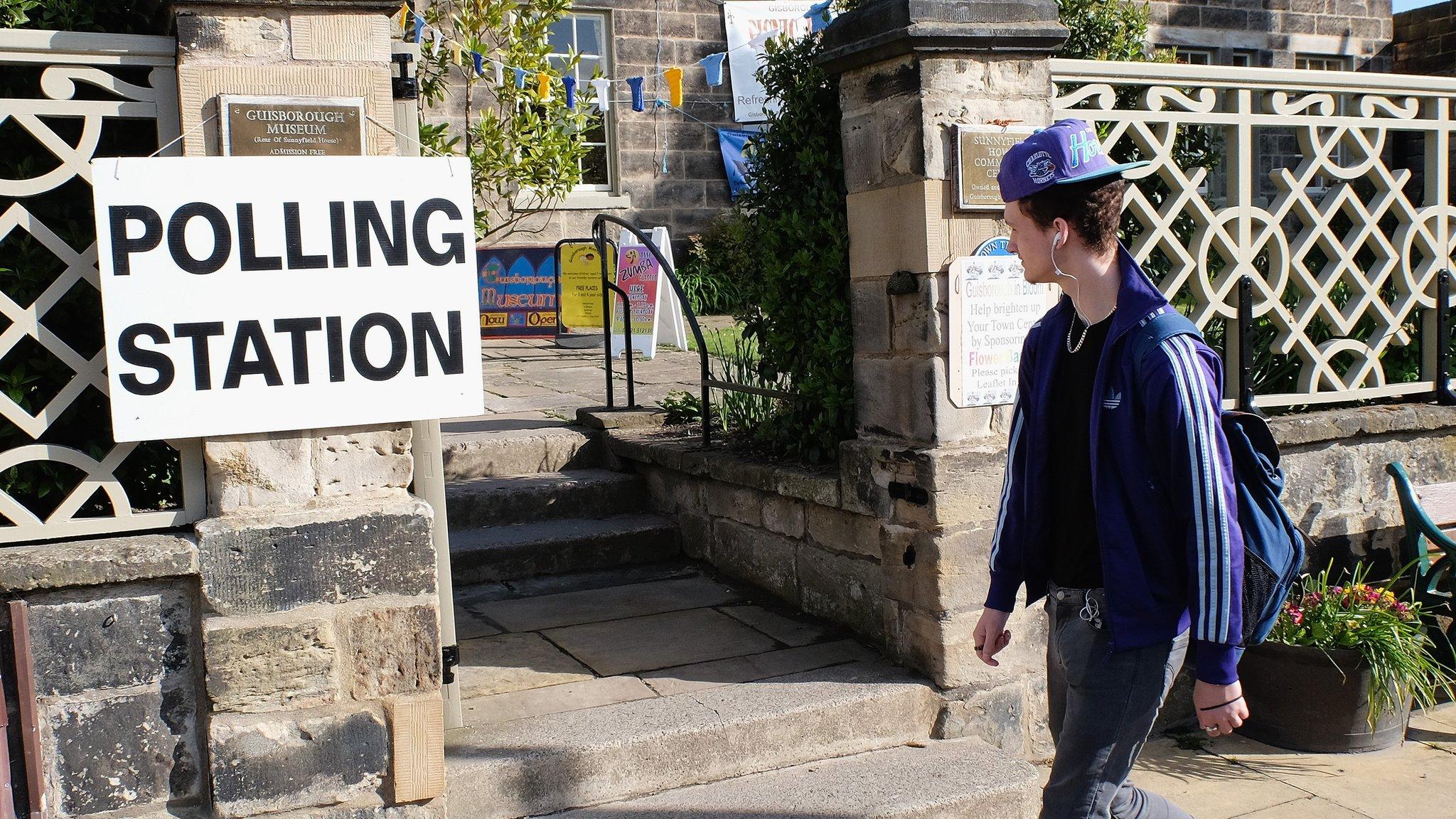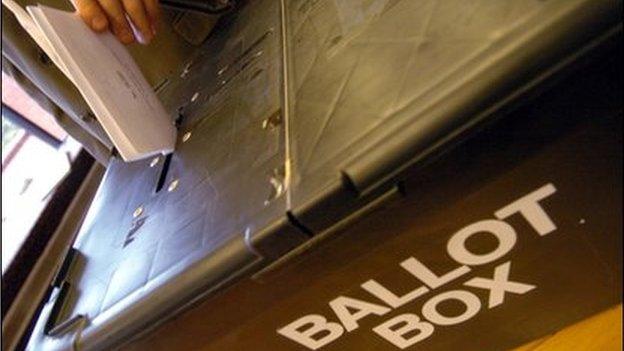Votes at 16: Wales voting reforms see voting age lowered
- Published

People aged 16 and 17 could soon be able to cast a vote in Wales under plans to modernise elections.
The Welsh Government wants to lower the voting age to allow younger people to vote at the council elections in 2022.
Cabinet Secretary Alun Davies said the changes would also give non-UK citizens who are "living legally in Wales" a vote.
He told BBC Wales' Sunday Politics show: "I think everybody who pays taxes should be able to vote."
If passed by the assembly, the plans would allow young people aged 16 and 17 to vote in Wales' next local authority elections to be held in May 2022.
Pupils at Ysgol Glan Clwyd in Denbighshire share their views on lowering the voting age
Wales would follow Scotland where the voting age has already been lowered for the Scottish and local government elections - with 16-year-olds also able to vote in the independence referendum in 2014.
The move comes 100 years after the Representation of the People Act was passed by Parliament giving women over 30 the right to vote.
The assembly has the ability to lower the voting age and make changes to voting systems under new powers set to be devolved to Cardiff in April under the 2017 Wales Act.
The changes would not apply to General Elections which are still controlled by the UK government in London, or the Welsh Assembly elections scheduled to be held in 2021.
Local Government Cabinet Secretary Alun Davies said the move was part of a series of changes planned by the Welsh Government to "modernise" voting in Wales.
Under the proposals citizens from other countries "living legally in Wales" would have the right to vote at local elections.
Alun Davies said anyone who pays taxes in Wales should be able to vote
Mr Davies said the move would affect about 70,000 people currently unable to vote in Wales.
"I would like to see us moving the franchise to enable younger people to take part in the democratic process," he said.
"I also want people who pay their council tax for example, but who might not be UK citizens to be able to vote.
"We are not just looking at the EU but people from wherever they come from across the world, who live and are resident and who pay taxes in Wales should be part of our democracy."
Changes to the electoral system would also see mobile polling stations trialled to allow people to vote in places such as supermarkets and libraries, and a pilot of electronic voting and counting.
'More clued up'
The Electoral Reform Society - who campaign for changes to the system - said the UK government should follow Wales' example and lower the voting age for national polls.
"This generation of school leavers are more clued up on politics than ever," said Chief Executive of the ERS Darren Hughes.
"Yet despite being the first to have received citizenship education, they are being denied their full rights as citizens.
"It would be a glaring constitutional injustice if around a million 16 and 17 year olds in England and Northern Ireland continued to be denied a vote in elections and it remains a political inequality that 16 and 17 year olds in Scotland and Wales will be unable to vote in Westminster elections."
The UK government said it had no plans to lower the voting age.
Conservative local government spokeswoman, AM Janet Finch-Saunders, said it was vital the Welsh Government's plans were scrutinised before any changes were made.
She said: "These are fundamental changes to our democracy, including automatic voter registration - which could make voter fraud much more likely.
"There's also the fundamental question about how we achieve greater engagement with the political system. But we need to ensure that any reforms encourage people to participate in democracy - without forcing them to."
Sunday Politics Wales is on BBC One Wales on Sunday 28 January at 11:00 GMT
- Published1 November 2017

- Published21 May 2017

- Published17 July 2017

- Published20 November 2014
